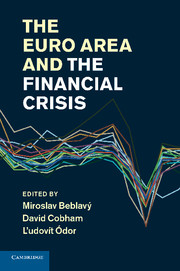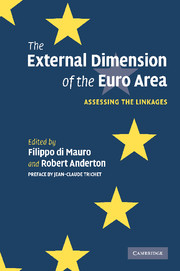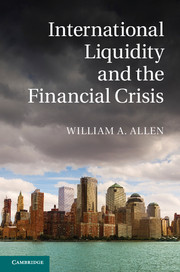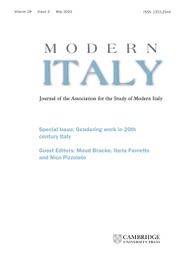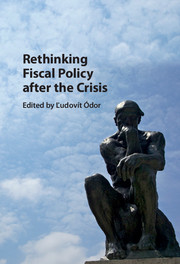The Euro Area and the Financial Crisis
£44.99
- Editors:
- Miroslav Beblavý, Univerzita Komenského v Bratislave, Slovakia
- David Cobham, Heriot-Watt University, Edinburgh
- L'udovít Ódor, National Bank of Slovakia
- Date Published: March 2014
- availability: Available
- format: Paperback
- isbn: 9781107673007
£
44.99
Paperback
Other available formats:
Hardback, eBook
Looking for an inspection copy?
This title is not currently available on inspection
-
The financial crisis of 2007–10 has presented a number of key policy challenges for those concerned with the long-term stability of the euro area. It has shown that price stability as provided by the European Central Bank is not enough to guarantee financial stability, and exposed fault lines in governance and deficiencies in the architecture of the financial supervisory and regulatory framework. This book addresses these and other issues, including why the crisis affected some countries more than others, whether the euro is still attractive for new EU states, and what policy changes and structural reforms, both macro and micro, should be undertaken to ensure its future viability. Written by a team of leading academic and central bank economists, the book also includes chapters on the cross-country incidence of the crisis, the Irish crisis and ECB monetary policy during the crisis, and studies on Spain, the Baltics, Slovakia and Slovenia.
Read more- Important contribution to ongoing discussion about policy reform and long-term stability of the euro area
- Explains why financial crisis has hit some EU states harder than others
- Examines issues of accession to euro area for future members
Reviews & endorsements
'The euro area is in the throes of an existential crisis. Understanding how it can get out requires first understanding how it got in. This book provides the essential background on the onset of the crisis, complete with national variations, before describing what European policy makers should do next. One can only hope that they heed the authors' advice.' Barry Eichengreen, George C. Pardee and Helen N. Pardee Professor of Economics and Political Science, University of California, Berkeley
See more reviews'A large collection of analyses by many of the best economists. The topic is burning, the discussions go right to the heart of the matter and all big issues are included. Rush to read this book because it deals with front-page news and because things change so fast.' Charles Wyplosz, Professor of International Economics and Director of the International Centre for Money and Banking Studies, The Graduate Institute, Geneva
Customer reviews
Not yet reviewed
Be the first to review
Review was not posted due to profanity
×Product details
- Date Published: March 2014
- format: Paperback
- isbn: 9781107673007
- length: 372 pages
- dimensions: 229 x 152 x 20 mm
- weight: 0.5kg
- contains: 56 b/w illus. 48 tables
- availability: Available
Table of Contents
List of figures
List of tables
List of boxes
List of contributors
1. Introduction Miroslav Beblavý, David Cobham and Ľudovít Ódor
2. Towards a new architecture for financial stability in Europe Athanasios Orphanides
Part I. The Experience of the Crisis:
3. Weathering the financial storm: the importance of fundamentals and flexibility Thorvardur Tjörvi Ólafsson and Thórarinn G. Pétursson
4. The Irish crisis Philip R. Lane
5. The crisis in Spain: origins and developments Angel Gavilán, Pablo Hernández de Cos, Juan F. Jimeno and Juan A. Rojas
6. The financial crisis and the Baltic countries Aurelijus Dabušinskas and Martti Randveer
Part II. Accession to the Euro Area:
7. The road to euro adoption: a comparison of Slovakia and Slovenia Biswajit Banerjee, Damjan Kozamernik and Ľudovít Ódor
8. Is the euro really a 'teuro'? The effects of introducing the euro on prices of everyday non-tradables in Slovakia Miroslav Beblavý
9. The euro's contribution to economic stability in Central, Eastern and Southeastern Europe: is euro adoption still attractive? Ewald Nowotny
10. Is the euro still attractive for CEE countries? Zdeněk Tůma and David Vávra
Part III. The Future of the Euro Area:
11. Why the current account may matter in a monetary union: lessons from the financial crisis in the euro area Francesco Giavazzi and Luigi Spaventa
12. National fiscal rules within the EU framework Daniele Franco and Stefania Zotteri
13. The road to better resolution: from bail-out to bail-in Thomas F. Huertas
14. Financial stability and monetary policy: lessons from the euro area Laurent Clerc and Benoît Mojon
15. Is there a case for price level targeting? Boris Cournède and Diego Moccero
16. Heterogeneity in the euro area and why it matters for the future of the currency union Wendy Carlin
17. How to regain confidence in the euro area? Vítor Gaspar
18. How to regain confidence in the euro area Stefan Gerlach
19. How to save the euro? Lessons from the US Jacques Mélitz
Index.
Sorry, this resource is locked
Please register or sign in to request access. If you are having problems accessing these resources please email [email protected]
Register Sign in» Proceed
You are now leaving the Cambridge University Press website. Your eBook purchase and download will be completed by our partner www.ebooks.com. Please see the permission section of the www.ebooks.com catalogue page for details of the print & copy limits on our eBooks.
Continue ×Are you sure you want to delete your account?
This cannot be undone.
Thank you for your feedback which will help us improve our service.
If you requested a response, we will make sure to get back to you shortly.
×
